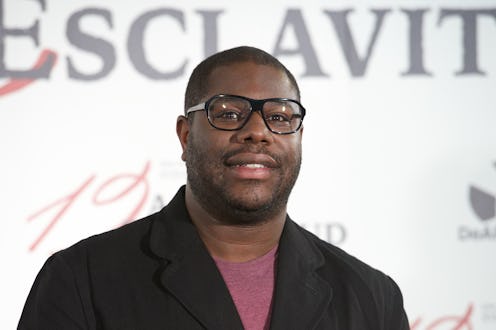Entertainment
Where Are the Other Directors like Steve McQueen?
There are myriad things we could and should thank Steve McQueen for, not least for bringing unknown yet exceptionally crucial pockets of history to the big screen. Following up his groundbreaking and poignant 12 Years a Slave, which won Best Picture at the 2014 Academy Awards, McQueen's next project will be a film about Paul Robeson, the son of a slave who became a legendary singer and activist. Per The Guardian: "'His life and legacy was the film I wanted to make the second after Hunger,' McQueen said, referring to his debut movie, about the IRA hunger striker Bobby Sands. 'But I didn’t have the power, I didn’t have the juice.'" The sort of stamina required to consistently tell such powerful and emotionally exhausting stories is something that even McQueen struggles to harness; and yet, he does. Which begs the question: where are the other storytellers like McQueen?
Paul Robeson is more well-known than the subject of McQueen's Slave, Solomon Northup, but to the layman, Robeson is probably a foreign name (myself included). Which is unfortunate, because his story is epic: "The young Robeson excelled at virtually everything he turned his hand to. Abandoning a legal career after experiencing severe racism at work, Robeson embarked on an acting and singing career that earned him worldwide fame."
He was also later decried as a communist under McCarthy's presidency. His entire existence was a rebellion against the system that sought to silence and oppress him, and yet he prevailed with bells on. McQueen made the announcement to interpret Robeson's story at a fitting venue, during a speech at the Hidden Heroes Awards.
We need more storytellers like McQueen, but to tell those stories is difficult. And maybe there are other directors out their like him who struggle not with taking on the task of difficult histories, but with exposure. A prime example: Ava Duvernay's film Selma, about Martin Luther King, Jr. and the march to Selma during the Civil Rights Movement, is getting little to no Oscar buzz, which is a dangerous omen about the diversity of the 2015 Academy Awards. Bustle's Michael Arbeiter dares to posit, "Should we consider the possibility that, after 'paying its dues' with a 12 Years a Slave's victory this past year, the institution is eschewing obligation to pay mind to another story about the plight of black freedom in America?" It's an uncomfortable question, but one that needed to be asked. It's not so far-fetched to me that there is an aura of "quota system" surrounding the Oscars.
I cannot know for sure if there is a certain dearth of directors willing to approach complicated stories of injustice. There's hope in directors like Duvernay, for example, who said of Selma: "How do you do the civil rights movement that hasn't been done? How do you do one that as someone who doesn't really like film would be interested in, so we were always trying to deconstruct the genre and also to get underneath to the people of Selma. It’s called 'Selma.' It's not called 'The King.'"
I have a feeling that Selma will definitely garner a niche audience, but the fact that there have not been rumblings of its chance as an Oscar contender are disappointing. Maybe the problem really isn't that there aren't more directors like McQueen trying to tell stories, but that these artists have a much harder time gaining visibility, perhaps because of the difficult and ugly truths of their stories. When I saw Dear White People, which was created and promoted to the Nth degree through the power of social media, I had a grand vision of its screenplay being nominated for an Oscar. Was it naive of me to assume that McQueen's success at the 2014 Oscars would open the door and elevate the expectations of diversity at the Academy Awards, or at least make it easier for directors of color to tell their stories? I hope not; I hope time will prove me wrong. Fingers still crossed that Selma joins the Oscars race.
